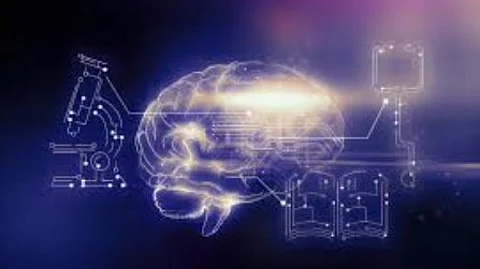

When Cardinal Robert Francis Prevost proclaimed himself Pope Leo XIV on 10 May 2025, his choice of name was a deliberate signal of his mission: to confront artificial intelligence (AI) as a profound threat to human dignity, justice, and labour. By invoking Pope Leo XIII — who in 1891 issued Rerum Novarum to address the dehumanising impact of the Industrial Revolution — Leo XIV casts AI as a modern equivalent: a ‘new industrial revolution’ that risks commodifying humanity. His papal name is not mere homage; it is a clarion call to resist AI’s potential to erode what makes us human. Yet, like cloning or nuclear energy, AI’s inevitability demands that we harness it responsibly, balancing ethical concerns with its capacity to advance humanity — particularly in medicine and research.
Rerum Novarum responded to a world transformed by mechanised production. While factories created wealth, they also displaced agrarian workers, deepened inequality, and trapped labourers in gruelling conditions. Leo XIII rejected both communism and unfettered capitalism, advocating living wages, trade unions, and the right to family and faith. His ideas reshaped societies, inspiring minimum wage laws in the United States and Catholic labour movements in Mexico. Today, Leo XIV sees AI as a similarly disruptive force. Its algorithms threaten jobs — from translators in European parishes to academics contending with AI-generated essays — while concentrating power in a handful of tech conglomerates.
For individuals, AI provokes inner conflict. Language models promise efficiency but stir unease: is using AI a form of plagiarism? Will it breed laziness or overdependence? Many feel guilt for choosing the “easy route”, much like an artist who, after mastering pencil and brush, hesitates to adopt digital tools. Yet artists now create breathtaking works using AI prompts, redefining creativity itself. Still, ethical questions remain: is AI art truly original? For those who’ve spent decades honing their craft, it can seem unjust that an algorithm might replicate their skill. These dilemmas echo Leo XIV’s concerns — that AI reduces labour, seen theologically as a path to self-realisation, to mere automation.
The darker aspects of AI deepen these anxieties. Misinformation, spread by AI bots on social platforms, erodes trust and fuels division. Algorithms designed to maximise engagement have been linked to youth mental health crises, intensifying anxiety and isolation. These outcomes reflect Leo XIV’s warning that AI risks alienating humanity from its moral compass. Yet AI, like earlier technologies, is part of the arc of progress. Spellcheck didn’t destroy writing; Google didn’t end curiosity. Each innovation was met with apprehension but ultimately expanded human potential. If guided by intention, an artist’s AI prompt can be as valid as a quill.
AI’s benefits, importantly, are transformative. In medicine, it speeds up drug discovery and enables personalised treatment. In climate research, AI helps predict environmental shifts and guide mitigation. Historians use AI to restore ancient texts, preserving cultural heritage. These applications align with the Church’s call for the common good, as Pope Francis stressed in 2024, when he urged support for a global AI treaty. Leo XIV’s mission, rooted in the legacy of Rerum Novarum, seeks a third way — neither techno-utopianism nor fearful rejection, but a moral framework in which AI serves
humanity.
To support Leo XIV’s vision is to defend human dignity while recognising AI’s inevitability. Workers must be reskilled to thrive in AI-driven economies. Artists need transparent systems that respect originality. Policymakers must curb misinformation and regulate addictive algorithms — perhaps through the treaty Pope Francis envisioned. The Church’s moral voice, with over a billion Catholics, can hold tech giants accountable, just as Leo XIII galvanised resistance to industrial tycoons. But we must shed Frankensteinian fears: AI is no autonomous monster — it is a tool we shape. The doctor using AI diagnostics, the historian reviving lost manuscripts, the teacher integrating AI ethically — these are acts of stewardship, not surrender.
Leo XIV’s papacy, like that of Leo XIII, can be a catalyst for global reform. Rerum Novarum helped tame the excesses of industrialisation; today, we need a new vision for the AI era — one that upholds human dignity while embracing progress. From climate scientists to medical researchers, those wielding AI for the common good exemplify this balance. As Leo XIV leads this moral crusade, we must heed his caution — but also seize the moment. AI’s future is not preordained. It is ours to shape with intention, ensuring it elevates the human spirit rather than undermines it.